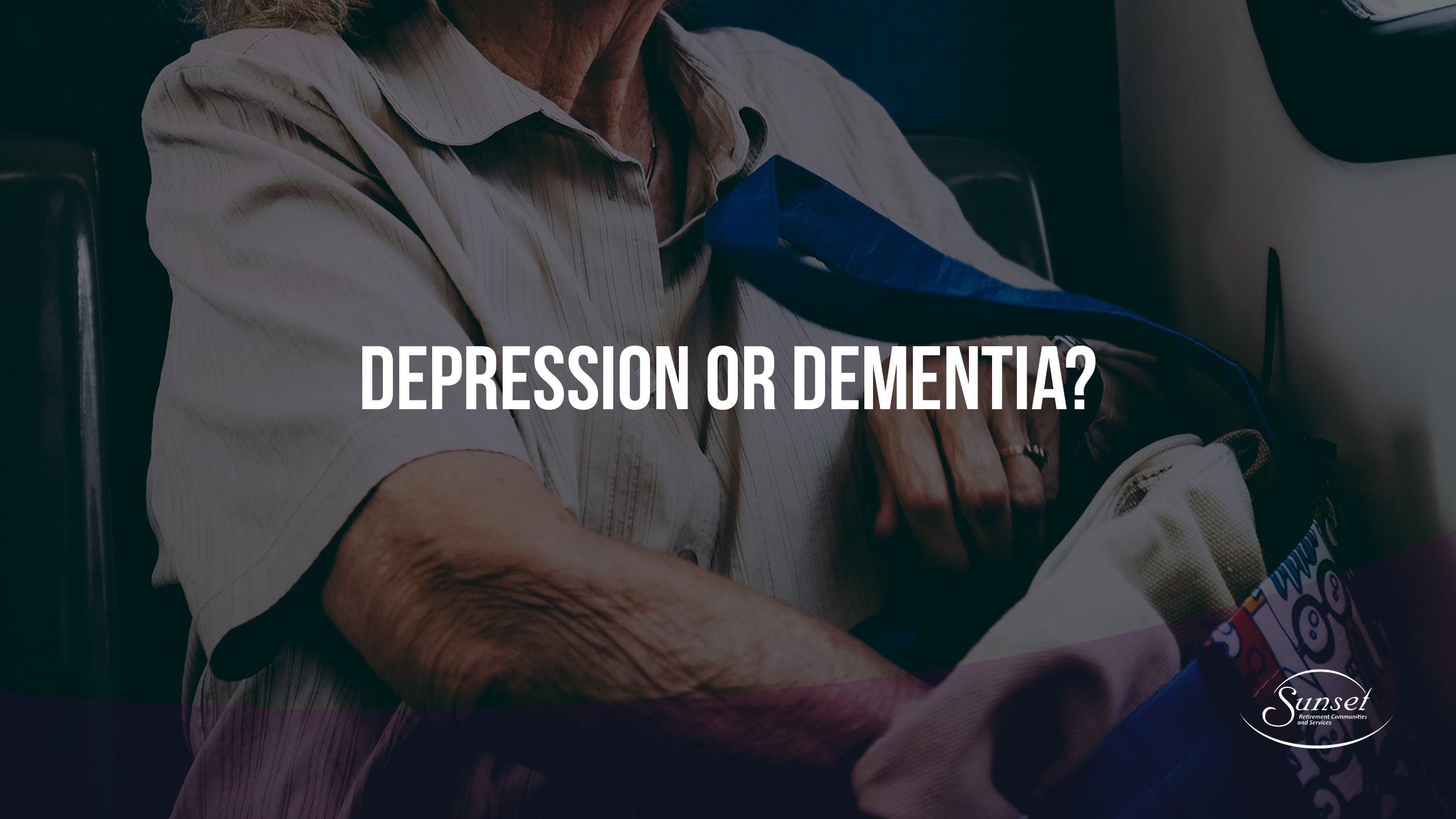Determining the cause of our aging loved ones out-of-character actions can be hard. It can be especially hard to tell the difference between depression and dementia symptoms. Continue reading for the important signs to help you narrow down the cause of your loved one’s character change.
Whether your loved one is experiencing the effects of depression or dementia, we believe they have hope. Learn more: https://www.wpmemorycare.org/

Determining whether a loved one has dementia or depression can often be difficult. This is because the two illnesses have so many similar symptoms. Studies have suggested that as many as half of dementia patients also have depression, making it even more difficult to narrow down the cause. With so much overlap, how do you determine if your loved one has dementia, depression, or possibly both? Here is some information that might help.
Diagnosis
First, the common symptoms between the two illnesses include: anxiety, irritability, poor sleeping habits, agitation, apathy, difficulty concentrating, and memory loss. The key difference is that dementia affects cognitive ability, while depression affects emotions. Someone with depression may not want to drive the car, pay the bills, or pay attention to details, while someone with dementia simply can’t do these things. And to further complicate things, a person who experiences the early signs of memory loss may build up so much anxiety and fear that it actually launches them into depression.
Here are some tell-tale signs to look out for to determine if a doctor’s visit is necessary: fatigue, sleeping too much, frequent crying episodes, sad feelings, hopelessness, poor appetite, overeating, and thoughts of death or suicide. When these symptoms last for at least two weeks, it’s time to take action. According to Leslie Kernisan, M.D., there are five questions you should ask a loved one if you suspect depression:
- Do you often feel helpless?
- Do you often get bored?
- Are you basically satisfied with your life?
- Do you feel worthless the way you are now?
- Do you prefer to stay at home rather than go out?
Talking to a Loved One
How do you bring up the topic of depression with a loved one? It’s important to understand that most elderly people don’t want to talk about depression simply because it’s embarrassing. Let them know it’s normal and they have nothing to fear. Showing empathy and actively listening can make it easier for them to open up. Asking questions such as, “you seem more tired and down than usual, are you okay?” may encourage them to share.
Treatment Options
There are many options available to help someone who is experiencing depression. First, this diagnosis should be confirmed by a medical doctor. And, depending on the severity, the doctor can recommend treatment options. Besides prescribing antidepressants, exposure to fresh air and sunlight are effective in treating depression, as well as physical exercise. Simply planning daily activities around the senior’s interests can help get them involved and excited again. Joining a support group can let your loved one know they aren’t alone in their feelings. Going to counseling may also help resolve some depression issues. The most important thing is to take action.
If you suspect your loved one is experiencing depression, please speak up and address the issue. You may save your loved one years of hopelessness and dramatically improve their quality of life by simply getting involved.
Written by Stephanie Roberts at SeniorsList.com